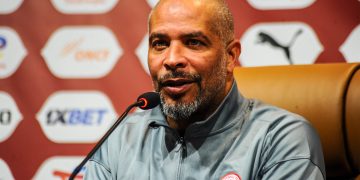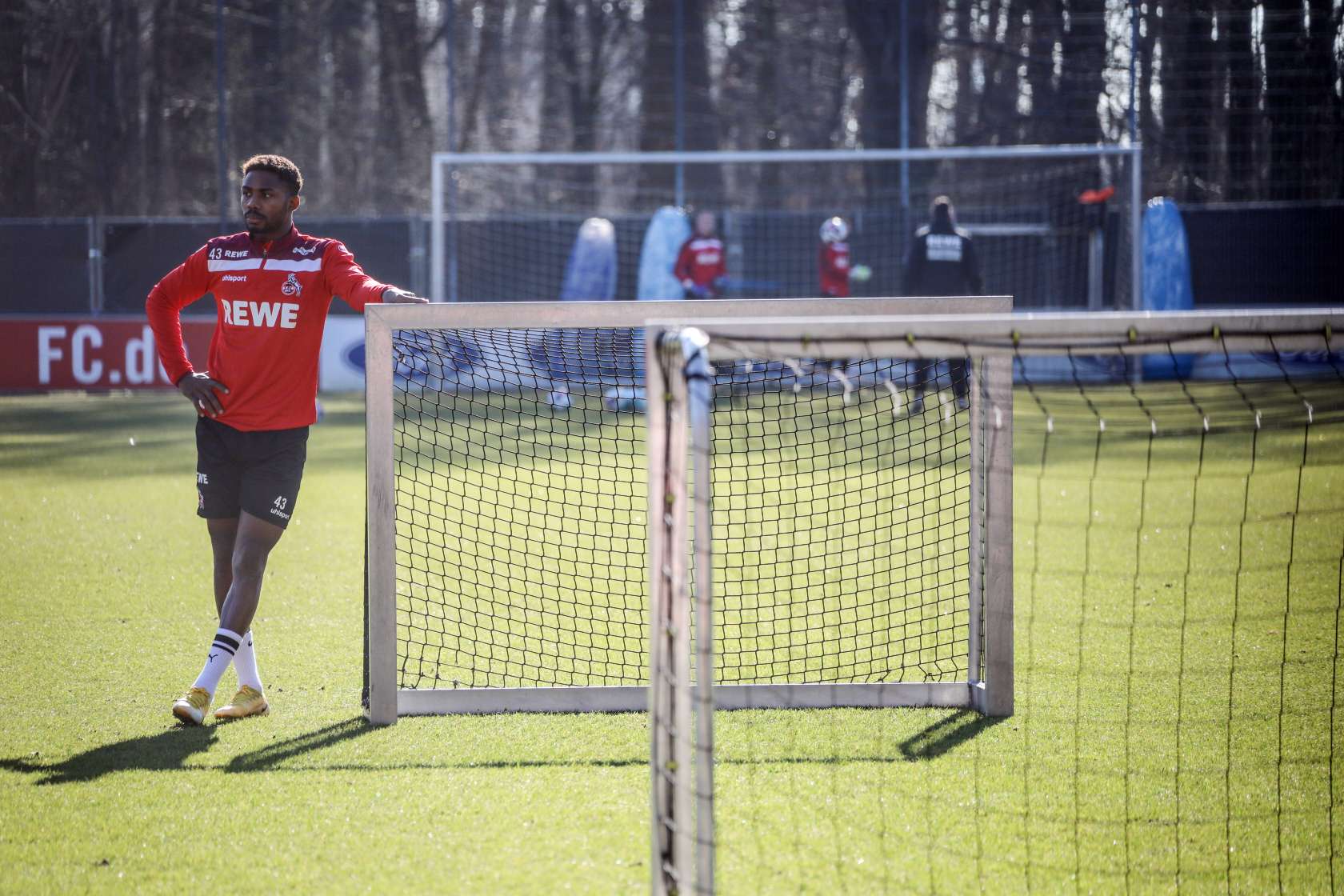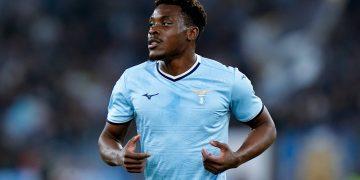Unfortunately, painfully and unexpectedly, Nigeria was knocked out of the long-awaited 2021 African Cup of Nations in the round of 16. “Unfortunate” because, on the day, nothing seemed to go right for the team.
“Painful” because of the manner of the loss; going a man down shortly after going a goal down. “Unexpected?” Not exactly. The victory over Egypt in the opening game masked all the ominous signs.
If there was a team Nigeria dreaded going into the tournament, it was Egypt. So, after cruising through the group stage, especially having dispatched the Pharaohs 1 – 0 in the opening game, it was very easy for the Super Eagles to underrate Tunisia.
It showed in the body language of the officials and players, even when they all chorused the popular “it is going to be a difficult game” pre-match cliché.
It was also evident in the lack of urgency in the way the Eagles played prior to conceding, after which they went on a rampage in desperate search of an equalizing goal.
Alex Iwobi has had a difficult year for both club and country, and while he may have looked to the AFCON to regain his mojo, he ended up unfairly as the main culprit for the country’s ouster.
The red card he received was obviously a harsh one, and it changed the game, handing the initiative completely over to the Tunisians who duly capitalized.
Iwobi is one of the most dedicated players in the Super Eagles, and this determination, coupled with a bit of pressure to bail the team out, resulted, unfortunately, in the red card. He does not deserve the castigation he is getting.
The same goes for Maduka Okoye. The goal Okoye conceded against Tunisia could have beaten any goalkeeper in the world, so all the criticism targeted at him in unfounded.
That being said, I had said, and I still maintain, that, after regaining full fitness following his return from injury, Francis Uzoho deserved to start ahead of Okoye, given his experience in the national teams so far.
Gernot Rohr thought differently, and so did Austin Eguavoen, who, given the limited time he had, made the logical decision to stick with the same team Rohr had built over the last five years and only making a negligibly few additions.
In this short time, Eguavoen was able to change the psyche and attitude of the players and bring back a fighting spirit into an otherwise lethargic side under the previous manager. These, however, do not mask the fact that sacking Gernot Rohr at the time it was done was a very bad idea.
In the latter stages of Gernot Rohr’s tenure, the team switched to the famous 4-4-2 and 4-2-4 formation, which deployed the wings.
Given the team of players he inherited, Eguavoen, understandably, deployed the same players in the same formation.
After securing nine points from the group matches with basically the same formation and players, he did not change a “winning team” like it is believed in football circles – and rightly so!
The downside to embracing that system is that he did not have the tactical nous and flexibility, and his team became too predictable to any discerning tactical mind.
With Moses Simon putting up quite a show and turning up as the team’s major attacking outlet from the left flank, it was easy for the Tunisians to decipher and consequently neutralise this threat by detailing two players each to cage Simon and Samuel Chukwueze (on the right).
Unfortunately, Eguavoen and his crew could not come up with an alternative plan, neither did they have the manpower to vary team tactics, and the rest is now history.
The lack of creativity in the Super Eagles midfield remains a sore thumb that has not been treated since the retirement of John Mikel Obi.
The preferred 4-4-2 formation requires ball-playing wingers (like Finidi George) who can also support the midfield.
More importantly, it requires midfield players who can keep possession and dictate the pace of the game (like an ‘Austin Okocha’ of Bolton Wanderers).
The Super Eagles do not have any such player with this natural skillset in the current team aside, perhaps, Kelechi Nwakali, who was only just recalled to the squad for the AFCON.
This lack of balance and creativity in the midfield to execute the team’s preferred 4-4-2 formation was exposed by the Tunisians.
An overriding reason for the aforementioned setback in this Super Eagles team, which many fail to acknowledge, is the glaring lack of world-class quality.
This is easily the youngest Super Eagles side ever, and understandably, the players are largely young. They are actually relatively experienced but are still mostly very average.
Amongst the regular players at this AFCON, Wilfred Ndidi is probably the closest to “world-class” status in the team.
The likes of Maduka Okoye, Ola Aina, William Troost-Ekong, Kenneth Omeruo, Semi Ajayi, Joe Aribo, Zaidu Sanusi, Moses Simon, Taiwo Awoniyi, Kelechi Nwakali, Peter Olayinka etc. – no disrespect to them – are merely average players.
Kelechi Iheanacho, Victor Osimhen and Samuel Chukwueze could be considered to be above average, but Jamilu Collins and Sadiq Umar are below average and are really not Super Eagles material.
Also, the Super Eagles lack an experienced leader. The last leader the team had was John Mikel Obi, who retired over three years ago after the 2018 World Cup.
Current team captain Ahmed Musa is well respected by the players, but he is not a natural leader. William Ekong and Wilfred Ndidi are still only trying to grow into that role.
Given all these issues, the Super Eagles do not have the makings of a championship-winning team, so it is not surprising that the team failed in Cameroon when many had tipped them as one of the favourites for the trophy.
It is not all gloom, however, as the AFCON ouster may just turn out to be a blessing – if the lessons are learnt, and remedial measures are taken to address them.
This painful AFCON experience was the wake-up call needed to bring the team to the reality of where it truly stands in the world game.
The humbling experience may just provide the spark to jolt the Eagles back to the realization that they need to buckle up if they intend to qualify for and do well at the World Cup later this year; starting with a victory over Ghana in the qualifying play-offs.





